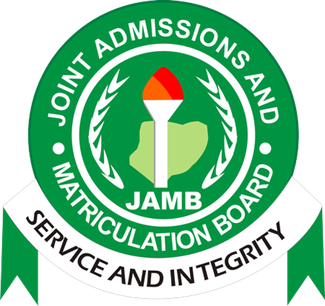The Joint Admissions and Matriculation Board (JAMB) last week, abolished general cut-off marks for admission into tertiary institutions. With this development, the Board has, therefore, given every institution the liberty to set its individual minimum cut-off mark for admission. This decision was taken by the Board at the 2021 policy meeting held on Tuesday August 31, 2021. The meeting, which was virtual, was chaired by the Minister of Education, Malam Adamu Adamu, represented by the Permanent Secretary in the Federal Ministry of Education, Arc Sonny Echono.
The Registrar of JAMB, Prof. Is-haq Oloyede, while announcing the decision of the stakeholders, said while the University of Maiduguri proposed 150, Usman Dan Fodiyo University Sokoto proposed 140, Pan Atlantic University recommended 210, University of Lagos, 200; Lagos State University, 190; Covenant University, 190; and Bayero University Kano wanted 180 as its cut-off mark.
The meeting also adopted the 2021 admission guidelines, which provide that all applications for part-time or full-time programmes for degrees, NCE, OND, and others must be posted only through JAMB.
Speaking on the stakeholders’ decision on other admission criteria, Prof. Oloyede said the candidate’s credentials must be uploaded on Central Admissions Processing System (CAPS) and recommended by the institution while JAMB approves and the candidate accepts the offer of admission. He said when candidates have not accepted an offer, the institution can change the candidate after informing JAMB. Oloyede further disclosed that for the 2021/2022 Unified Tertiary Matriculation Examination (UTME), the board was introducing two new subjects: computer studies and physical and health education, bringing the number of subjects to a total of 25.
According to the stakeholders, the 2021 admissions will be conducted only through CAPS; no institution is allowed to admit candidates without uploading their details on CAPS. The Minister of Education, Adamu Adamu, said: “It is saddening that despite the clear directives at previous policy meetings, some institutions still illegally admitted candidates outside CAPS. I consider such an act as a direct affront on the system, and appropriate sanctions shall be applied on those found to have been in such a disruptive act.”
This revised policy on cut-off marks practically means institutions have the liberty to admit candidates based on their respective minimum scores approved by the institutions and the policy meeting; advising institutions to maintain their individual minimum scores as approved by the policy meeting.
While the liberalisation policy on cut-off marks for admissions into the country’s tertiary institutions provides independence to determine which student gets in and what course he/she is given, there’s tendency for the policy to be abused, particularly by private and state-owned universities which may want to set very low admission cut-off marks for some ulterior political and economic reasons. Private universities, for instance, could choose to lower their cut-off marks to attract more candidates for economic reasons while state universities, on the other hand, could do that to provide admission spaces for indigenous candidates.
We must be mindful of the falling standard of education in Nigeria and to see this as an opportunity to lower standard will amount to a disservice to the country. Institutions should be guarded by the basic principle of excellence in admitting students. They should ensure that they do not go below a certain level. We understand the need to admit more students, especially for the private universities, but the aim for which they were established would be defeated if admissions are not based on performance. We, therefore, urge JAMB to continue to provide oversight functions to ensure that universities do not derail too far from the current standard. It should also carry out a periodic review of this policy with a view to addressing concerns that may arise from its implementation. The JAMB should also function as a clearing house not only to forestall duplication of admissions but also to enforce compliance to all admission guidelines by tertiary institutions. Excellence must be the key word in implementation of this policy.

 Join Daily Trust WhatsApp Community For Quick Access To News and Happenings Around You.
Join Daily Trust WhatsApp Community For Quick Access To News and Happenings Around You.


